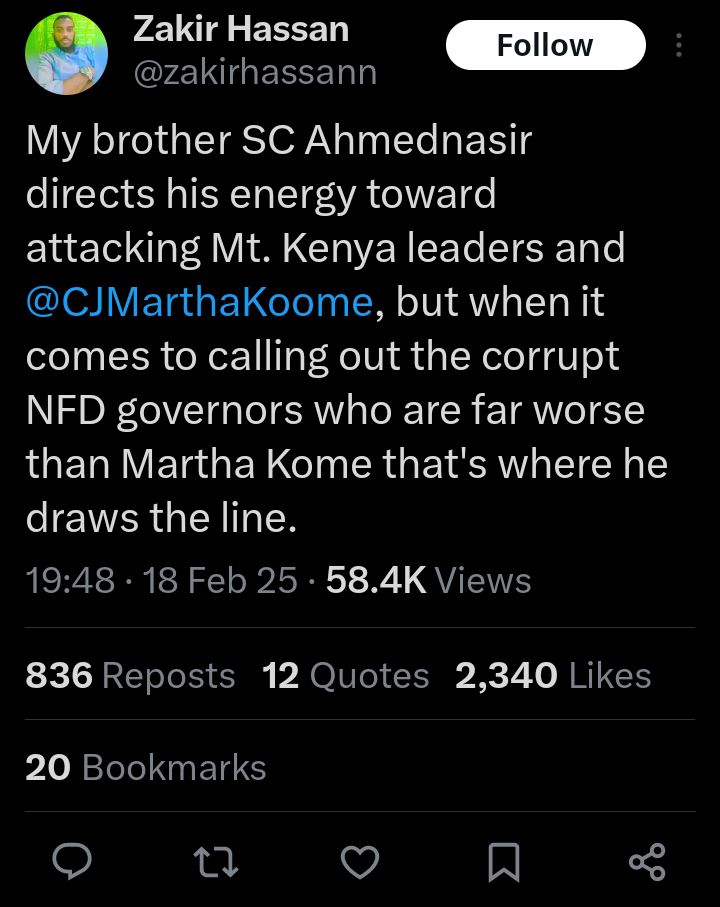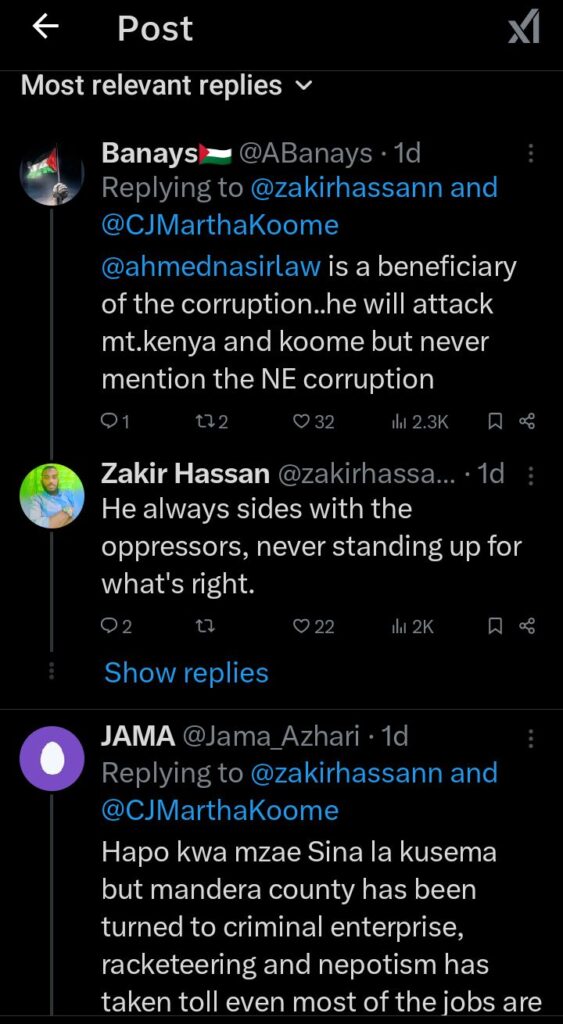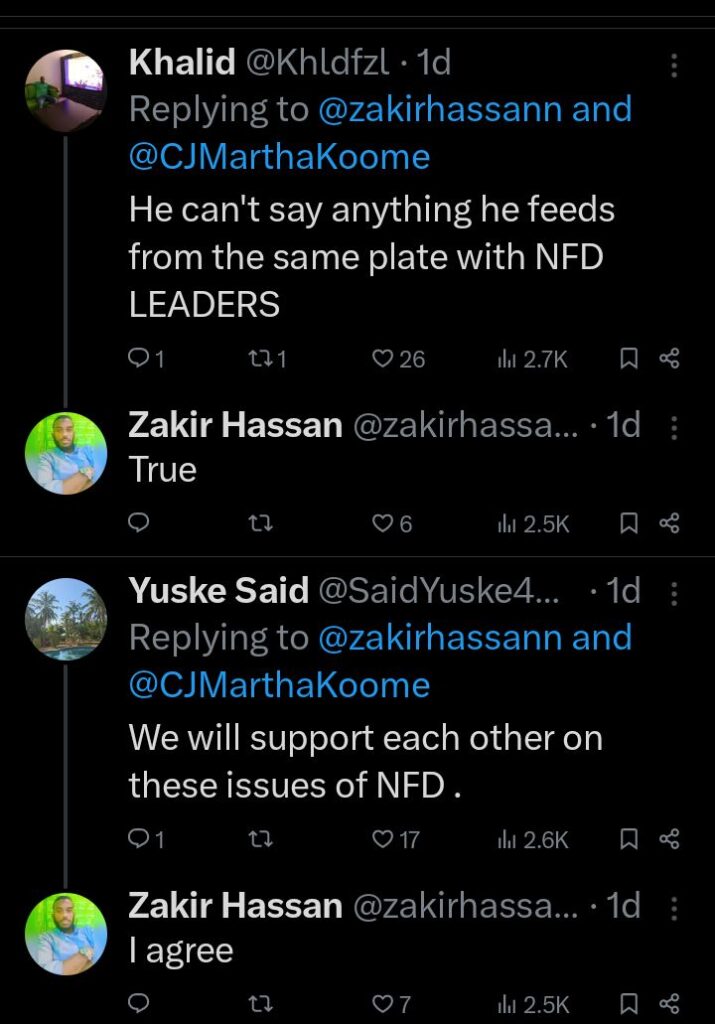Zakir Hassan, a well-known blogger from North Eastern Kenya, recently shared a post on his X handle criticizing Senior Counsel Ahmednasir Abdullahi.
He pointed out that Ahmednasir spends a lot of time attacking leaders from the Mt. Kenya region and Chief Justice Martha Koome but does not speak about the corrupt governors in North Eastern Kenya.
According to Zakir, these governors are worse than Martha Koome, yet Ahmednasir remains silent about them. This raises questions about whether Ahmednasir’s criticism is truly about justice or if he chooses his battles based on personal or political interests.
Ahmednasir has always been vocal about corruption in the judiciary. He has criticized CJ Martha Koome several times, claiming she does not understand the problems in the judiciary. In January 2024, he said that Koome was unaware of the corruption in Kenyan courts and that her leadership had failed to bring change.
He argued that she operates on a document called “Social Transformation through Access to Justice,” which, according to him, is mostly filled with pictures and lacks a real plan.
He even went as far as saying that the Judicial Service Commission under her leadership has completely failed. He has called for a clean-up of the judiciary, saying that judges who engage in corruption should be removed.

Despite his strong words against the judiciary, Zakir Hassan’s observation brings out an important issue. While Ahmednasir attacks Koome and Mt. Kenya leaders, he does not show the same energy when it comes to exposing corruption in his own region.
North Eastern Kenya, which includes counties like Garissa, Wajir, and Mandera, has been accused of serious corruption cases involving local leaders. Many residents complain about poor services, lack of development, and mismanagement of public funds.

However, Ahmednasir rarely speaks about these issues. This silence makes people wonder if his activism is selective and if he avoids certain topics for personal reasons.
His focus on national issues and refusal to discuss local problems is even more noticeable when you look at his actions against the Supreme Court.
In January 2024, Ahmednasir announced that he would no longer appear before the Supreme Court as long as CJ Koome and some other judges remained on the bench.

He made this decision after the court barred him from filing cases before it, arguing that he had been attacking the judiciary without evidence. His refusal to engage with the court was a strong statement against what he believes is corruption at the highest level, yet he does not show the same commitment to exposing corrupt officials in North Eastern Kenya.
Zakir Hassan’s comments raise an important question about accountability. If people like Ahmednasir want to fight corruption, they must do so at all levels. It is not enough to criticize only national leaders while ignoring corrupt officials in one’s own backyard.
Corruption in counties affects people’s lives directly, as funds meant for health, education, and development are stolen. If Ahmednasir truly wants justice, he should be just as vocal about the wrongdoing in North Eastern Kenya as he is about the judiciary and Mt. Kenya leaders.
Zakir’s post serves as a reminder that true activism should not be selective. Leaders and influencers should be consistent in their fight against corruption, whether it is in the national government or the counties. If Ahmednasir wants to be taken seriously, he must prove that his fight is not guided by personal or political interests. People are watching, and silence on certain issues can sometimes say more than words.


